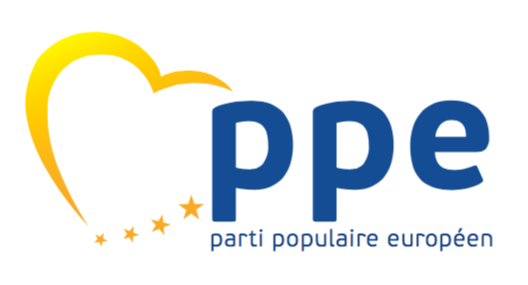When Jens Stoltenberg (NATO) sees the European Union incapable of defending itself. Is he right ?
(B2) “After Brexit, the European Union will no longer be able to defend Europe. 80% of NATO's expenditure will be provided by non-EU countries” NATO Secretary General Jens Stoltenberg has just declared to the press, ahead of the meeting of Foreign Ministers. Is it correct ?

Where does this number come from?
We searched carefully. This percentage (80%) in fact takes into account the totality of the defense budgets of the Atlantic allies – USA, Canada and Turkey included. However, in principle, a defense policy first serves to protect a country, its economy and its interests. And these are not shared 100% by its allies, especially for countries outside Europe (United States and Turkey). The size of the budget contributes to the 'musculation' effect of the Alliance. This does not mean that it is intended totally for Europe. In doing so, Jens Stoltenberg straddles a shortcoming often used in transatlantic circles: confusing the NATO budget (the budget of the organization 'Atlantic Alliance') with the addition of the defense budgets of NATO member countries (the so-called indirect budget, read in particular: The defense budget of the Allies exceeds 1000 billion).
Does Brexit have a major effect?
Of this percentage, the major part is provided by the USA (approximately 73% of NATO budgets), a little by Turkey (1,5%) or Canada (2%). The contribution of the United Kingdom is notable (6%), but not sufficient in itself to accentuate the balance in a decisive way. To imply that after Brexit, the defense of Europe is no longer assured is a mathematical pretense. It is also a political heresy. This statement is in total contradiction with the doxa of the Alliance (repeated regularly by the same Secretary General): Brexit does not change the Alliance's territorial defense policy one iota. Read also: The United Kingdom, first defense budget in Europe? True or False (blog)
Do the interests of non-EU countries serve Europe?
The shift towards Asia-Pacific made by the USA for several years, just like its status as a world power, explains more the size of the American defense budget than the concern to defend European territory (1). And this budget includes very national expenditures.
Example: the cost of reconstruction and security efforts after hurricanes Florence and Michael is estimated at $9,2 billion (2). That is the equivalent of the budget of Belgium and Denmark combined! It is not 'honest' to include this budget line in the defense of Europe.
As for Turkey, it is rather inappropriate today to automatically add its defense budget to NATO's defense: Is the purchase of S400 missiles, its offensive in Syria like the action against the PKK contribute to the defense of Europe?
How then to evaluate the US contribution to the defense of Europe?
This is a very delicate question. If we pay attention to the US budget for 2019, only $6,5 billion is dedicated to the European defense initiative. This is the bottom of the range. If we widen the spectrum and take into account all external operations, we arrive at $69 billion: $46,9 billion for Sentinel (counter-terrorist operation of Afghanistan in the Strait of Hormuz), 15,3 billion for the operation Inherent Resolve in Iraq and 0,9 billion for cooperation (all countries combined). We can add to this the nuclear expenditure which contributes directly to the defense of the Alliance (20 billion $ on average per year), we thus arrive at a total of approximately 89 billion $ out of a budget of approximately 700 billion $, i.e. around 9% of the Alliance's total budgets.
To be fair, you would have to add a share of the expenses for personnel, R&D, etc. which can be estimated according to the operations + nuclear ratio over the entire budget. we would then arrive at a rapid estimate (to be refined) of an American contribution of approximately $160-170 billion. This is the top of the range in our opinion. We are not on a figure higher than what Europeans spend. But rather in a ratio closer to 55-45 than 80-20: approximately 220 billion $ for the EU27 bloc in 2019 (according to November NATO assessments) compared to around $260 billion for the Non-EU NATO bloc (USA, Canada, Turkey, + Non-EU Europe).
The European Union not able to 'defend Europe' in Brexit?
The European Union has never made military territorial defense one of its policies and does not intend to do so. This is the role of NATO. And even those most daring on European defense cannot conceive of it otherwise. On the other hand — this is one of the axes initiated by the Juncker Commission (continued under the Von der Leyen Commission) — it has redirected part of its budget towards defense and security. This is in addition to NATO spending. After Brexit, the European Union will in fact be more committed to European defence, if we look at the provisional budget for the future years 2021-2027 (3) than ever before.
Thus, the border and coast guard corps (approximately 300 million € per year) will be on the civilian level what the territorial defense of NATO is on the military level. The budget devoted to the European Defense Fund (a little less than 2 billion € per year) should boost the European defense industry, in its research and development part. The European Peace Facility (€1,5 billion per year) will rationalize peacekeeping and military cooperation efforts towards third countries. As for the military mobility project, it will finance, at the rate of €850 million per year, one of NATO's objectives (to facilitate the circulation of military means in Europe).
Read also: The USA scolding Europe. When the cowboy pulls his gun, should we be afraid?
Conclusion: a white lie about a real problem
By claiming to respond to a formula from Emmanuel Macron (the brain death of NATO), Jens Stoltenberg certainly satisfies a few irritated allies (4). But his answer is clumsy to say the least. Hitting the European Union to elevate the Alliance to the rank of supreme savior is a pretense. Real questions are currently being asked: In the era of Erdoğan and Trump, are Turkish and American engagements reliable? Are their national strategies in line with the interest of the Allies? Shouldn't the Europeans take over? etc Hiding them under the rug is not good policy. Mixing true information with false claims sounds like disinformation. This discredits the Alliance rather than serves it.
But the Norwegian is right on one point: to warn of a necessary rebalancing within the Alliance. The Europeans still rely too much on the Americans for their own defence. Donald Trump is not wrong: Europe, a rich continent, should provide more for its defense. Even put into perspective, we cannot ask the Americans to pay as much as the Europeans for the defense of their continent. But Americans also need to be more consistent with themselves. They cannot howl wolf as soon as Europe wants to equip itself with a few instruments (such as permanent structured cooperation or European defense funds) and engage in intense lobbying to reduce its scope and power as soon as Europeans show the slightest will to organize more consistently.
(Nicolas Gros-Verheyde)
Read also: Where is NATO's 2% target? Is Trump telling the truth?
- Without NATO, the US defense budget would have to be much higher because it would have to take care of its eastern flank more. Turning the question around and trying to find out what the cost of the Non-Alliance would be for the United States is just as interesting as this question posed for the Europeans.
- Excerpt from the briefing on the draft US defense budget for 2020
- As proposed by the Commission. It is not yet approved by the Member States.
- It will be noted that the American president Donald Trump, however quick to take flight on twitter, did not react to the words of Emmanuel Macron.
Updated on 3.12 with NATO figures from November 2019



